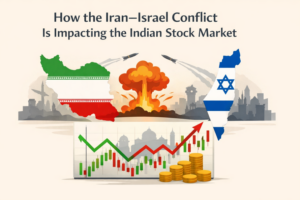NSEL Scam: Legal Actions, Prosecutions, and Resolutions

Key Highlights
- The NSEL scam involved a payment default of ₹5,600 crores on the National Spot Exchange Limited (NSEL) platform in 2013.
- Investigations revealed brokers encouraged investors to engage in illegal pair trade contracts, bypassing regulations and leading to fraudulent transactions.
- The Enforcement Directorate (ED) launched investigations under the Prevention of Money Laundering Act, 2002, leading to the attachment of assets worth approximately ₹3,288.76 crores.
- SEBI declared several prominent brokerages as ‘not fit and proper’ to operate as commodity derivative brokers due to their involvement.
- The former Union Finance Minister, P. Chidambaram, and two other bureaucrats, faced legal action for their alleged roles in the crisis.
- Despite numerous legal proceedings and investigations, a resolution to compensate investors fully remains pending.
Introduction
The National Spot Exchange Limited (NSEL) scam, uncovered in 2013, shocked India’s financial markets. This large scam included a huge payment failure and involved many important people. This group included well-known brokerages like Anand Rathi Commodities and Financial Technologies India Ltd (FTIL), which was created by Jignesh Shah. The scam showed big gaps in regulations and showed the need for better protection for investors in India’s commodity markets.
Overview of the NSEL Scam
The NSEL scam started when the National Spot Exchange Limited, known for trading commodities, failed to make payments that totaled thousands of crores. The exchange had contracts that allowed investors to buy and sell the same commodity at different prices and dates. This made it seem like profits were assured.
But, these contracts did not have real physical goods behind them. When the Forward Markets Commission (FMC) stepped in, the scam came to light. As a result, many investors faced major financial losses.
The Genesis of the Scandal
National Spot Exchange Limited (NSEL) was created by Financial Technologies India Ltd (FTIL) and its founder Jignesh Shah. It started live trading in 2008. NSEL was originally meant to be a way to easily trade commodities. However, it soon got involved in questionable trading practices. The new paired contracts, which looked like a good idea, ended up causing problems. These contracts had different settlement times and let people sell short, even though it was not allowed. They also hid the fact that there were no actual physical goods behind them.
When the Forward Markets Commission (FMC) told NSEL to stop creating new contracts, the whole operation fell apart. This led to many payment failures and revealed the scam.
Impact on Investors and Market
The NSEL scam had a big effect, shaking investor trust in India’s commodity markets. Many people, drawn in by the promise of high returns, suffered huge losses. This situation caused groups like the NSEL Investors Action Group (NIAG) to form. They work hard to help recover the money that was lost.
Famous brokerages like Anand Rathi Commodities also faced a major blow. Their supposed involvement in mis-selling NSEL products and fiddling with client accounts was questioned. This further weakened trust in those involved in the market.
Legal Proceedings and Investigations
After the NSEL scam came to light, Indian authorities started many investigations to understand the details of the fraud and hold those responsible accountable. The Enforcement Directorate (ED) began an inquiry under the tough Prevention of Money Laundering Act, 2002, which aims to fight financial crimes.
Additionally, the Economic Offences Wing (EOW) of the Mumbai Police launched its investigation. They looked into the roles of NSEL officials, brokers, and borrowers involved in the scam.
Role of Enforcement Directorate (ED)
The Enforcement Directorate (ED) played an important role in looking into the NSEL scam. They checked for financial problems and possible money laundering activities. The ED helped uncover the complicated fraud behind the transactions. Under the Prevention of Money Laundering Act, they examined how money moved and found illegal funds related to the scam. Their hard work, alongside other organizations, helped catch the main wrongdoers. The ED showed their dedication to keeping finances safe and fighting financial crimes effectively.
Involvement of Economic Offences Wing (EOW)
The Economic Offences Wing (EOW) was crucial in the NSEL scam investigation. With their skill in handling financial frauds, EOW helped uncover a complicated trick. They worked close with other groups like the Enforcement Directorate (ED) and the CBI. This teamwork made sure the ongoing look into the scam was thorough. It resulted in important discoveries and legal steps against those involved. The EOW’s hard work to seek justice showed how serious the NSEL scam was. It also emphasized the need for quick and strong action.
Conclusion
The NSEL scam is a clear example of what happens when there is financial wrongdoing. It harms both investors and the market. Thanks to the hard work of groups like the Enforcement Directorate and the Economic Offences Wing, steps have been taken to bring those responsible to justice. It is important to pay back the affected investors and fix the system’s weaknesses. We also need to strengthen our efforts to prevent scams in the future. By understanding these events and encouraging openness and responsibility, we can work towards a safer financial environment. If you want more information or help with financial issues, please contact us for support.
Frequently Asked Questions
What led to the NSEL Scam?
The NSEL Scam started from dishonest activities on the National Spot Exchange Limited (NSEL) platform. Financial Technologies India Ltd, which is Jignesh Shah’s company, was a big part of it. The Forward Markets Commission (FMC) revealed there was no single market for commodities. This was a key factor in the scam’s failure.
How are the investors affected by the scam being compensated?
The Competent Authority is in charge of helping affected investors. They are guided by the Finance Ministry and the Maharashtra Government. The NSEL Investors Action Group (NIAG) is very important in helping investors get justice.
What actions have been taken against the perpetrators?
Agencies such as the Enforcement Directorate (ED), the Economic Offences Wing (EOW) of the Mumbai Police, and the Central Bureau of Investigation (CBI) are looking into the matter. The Supreme Court is overseeing the legal processes.
How has the legal system in India addressed this case?
The Bombay High Court and the Supreme Court are very important in the NSEL case. The State of Maharashtra is working with the Enforcement Directorate to take legal action against Financial Technologies India Ltd (FTIL).
Are there any preventive measures in place now to avoid such scams?
The Forward Markets Commission (FMC) is very important for stopping scams in the future. India has made the Prevention of Money Laundering Act stronger. Now, regulators like the Exchange Board of India (SEBI) and commodity brokers must follow stricter rules.
Disclaimer
The stocks mentioned in this article are not recommendations. Please conduct your own research and due diligence before investing. Investment in securities market are subject to market risks, read all the related documents carefully before investing. Please read the Risk Disclosure documents carefully before investing in Equity Shares, Derivatives, Mutual fund, and/or other instruments traded on the Stock Exchanges. As investments are subject to market risks and price fluctuation risk, there is no assurance or guarantee that the investment objectives shall be achieved. Lemonn (Formerly known as NU Investors Technologies Pvt. Ltd) do not guarantee any assured returns on any investments. Past performance of securities/instruments is not indicative of their future performance.







